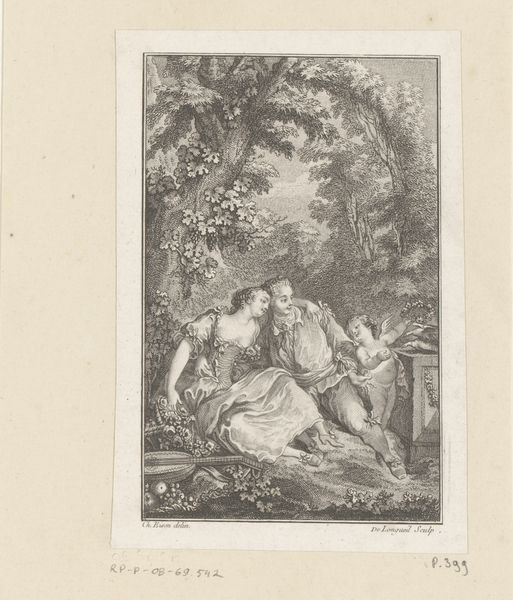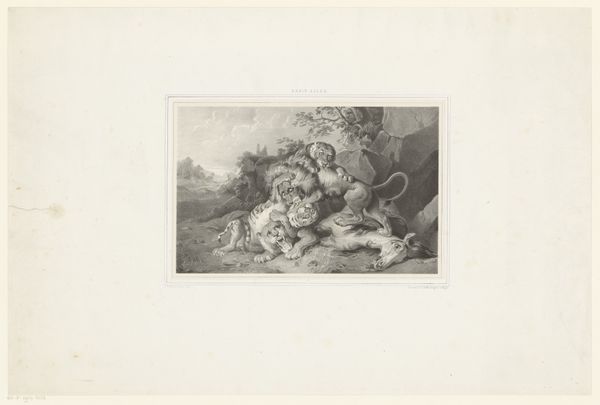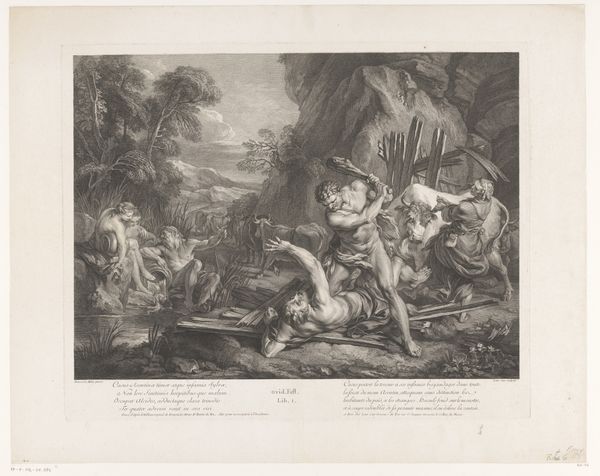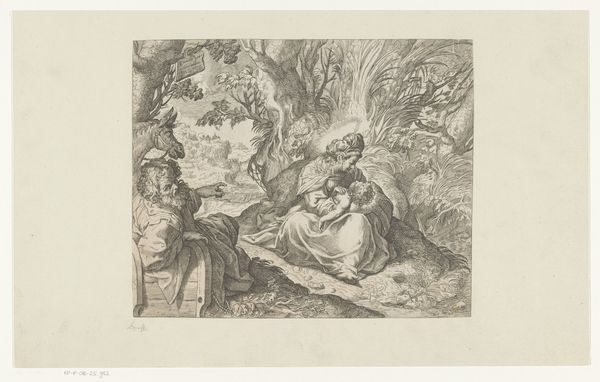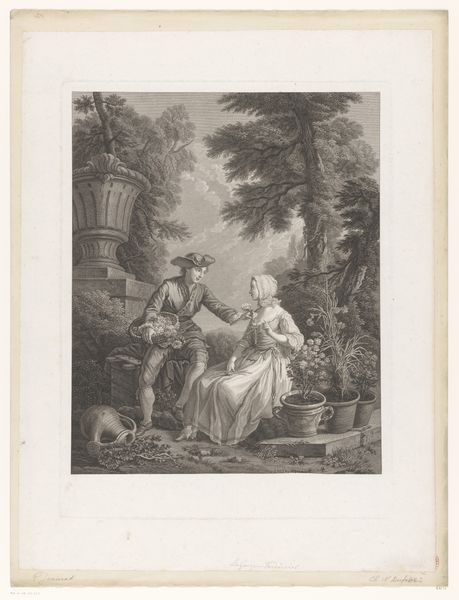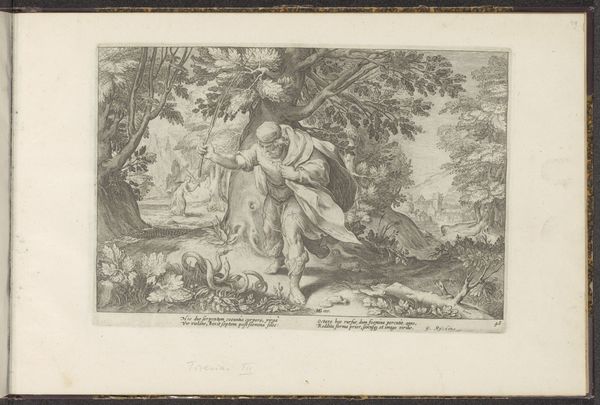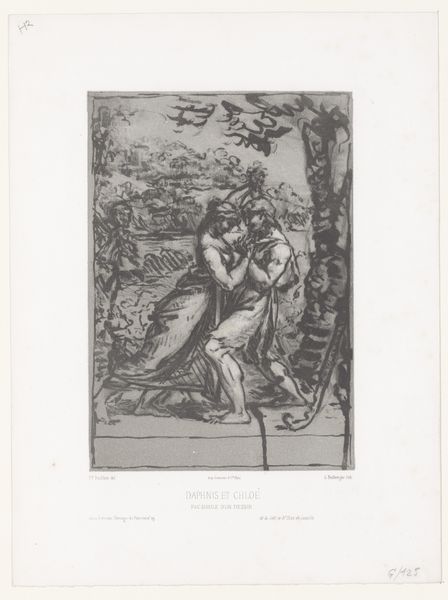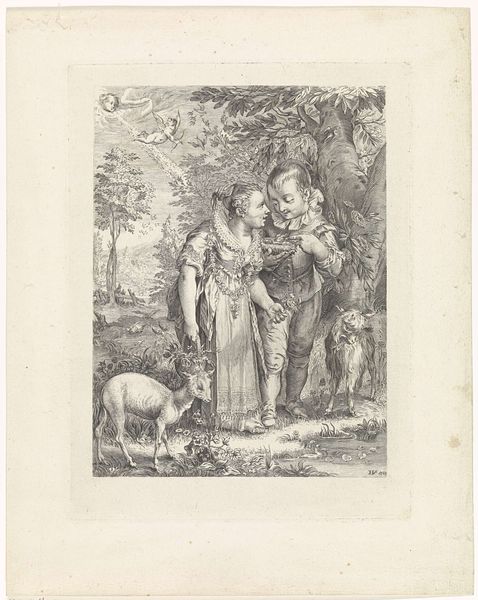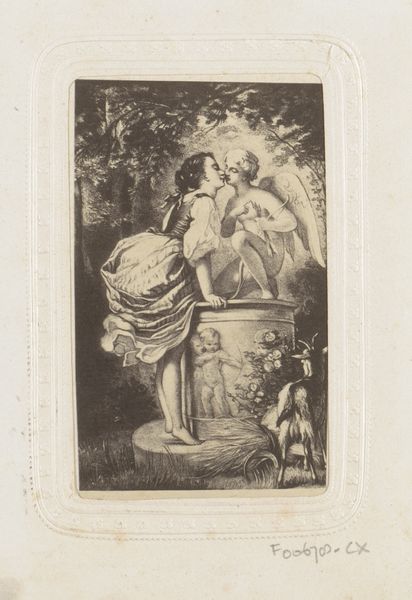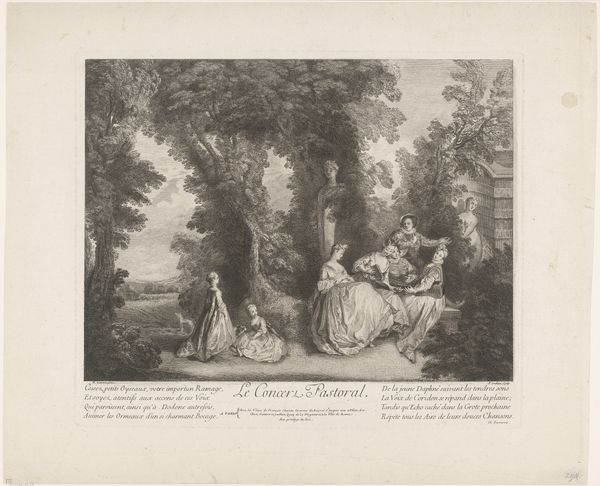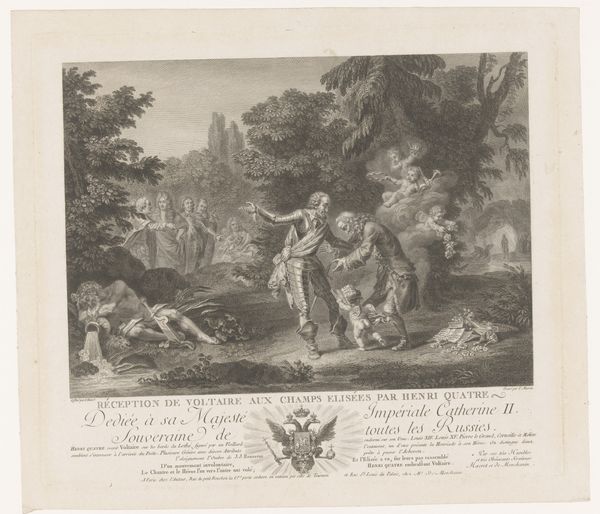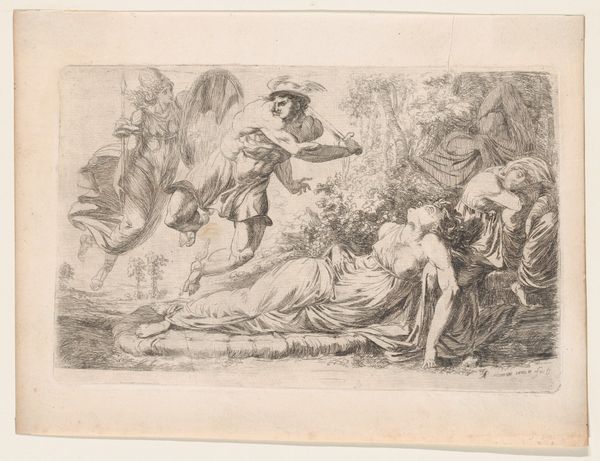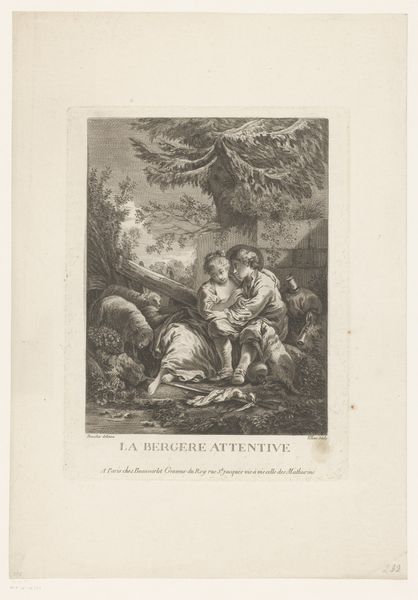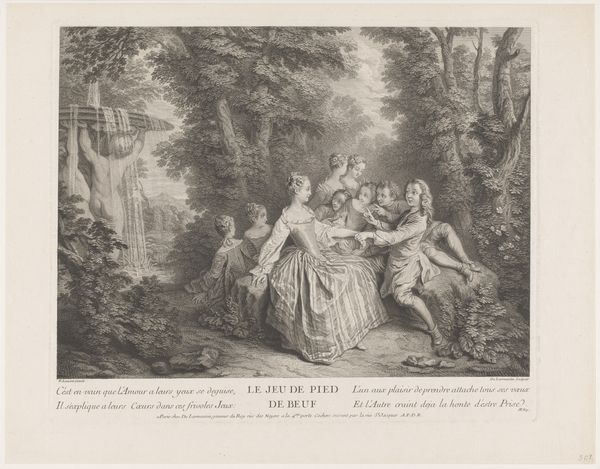
print, engraving
#
narrative-art
#
baroque
#
ink paper printed
# print
#
figuration
#
line
#
genre-painting
#
history-painting
#
engraving
Dimensions: height 329 mm, width 368 mm
Copyright: Rijks Museum: Open Domain
Editor: This is "The Servant Justified" by Nicolas de Larmessin III, created around 1743. It's an engraving. The scene has a very theatrical, almost staged feel, with a man reaching out to a woman who seems to have fainted in a garden. What story do you think the material details can tell us? Curator: Well, being an engraving made in the 18th century immediately situates it within a particular system of production and consumption. It would have been a reproducible image, relatively affordable, circulating ideas about class and morality to a broader audience. Look closely at the *type* of lines Larmessin employed—they're clean, precise, facilitating quick reproduction for the printer; the lines would be efficient to create and cost-effective for the shop. Editor: So the choice of engraving itself reflects its intended audience and the means by which they would have accessed art? Curator: Exactly. The very act of reproducing it meant someone somewhere thought that many consumers could enjoy its message, thus making it viable to sell. Further, what social dynamics are playing out in this print? Look closely at how class differences are presented here through gestures, fashion, and surrounding objects and statues. Who has the power, who performs labor? What do *they* tell us about labor and power relationships in 18th-century France? Editor: I hadn’t considered the labor that goes into disseminating prints like these. Seeing how you can infer the artwork's societal place from materials and labour makes me see engravings, and all artwork really, in a whole new light! Curator: Indeed. Examining the material processes and the context of production moves our focus away from purely aesthetic judgement and illuminates social history.
Comments
rijksmuseum over 2 years ago
⋮
This print illustrates the opening scene of a famous licentious tale by Jean de la Fontaine. A flighty husband seduces a pretty serving girl as she was gathering flowers in his garden, while a neighbour observes their moves from her window, ready to report to his wife. The engraver chose to depict their encounter, brewing with amorous tension, set in a lush vegetal alcove.
Join the conversation
Join millions of artists and users on Artera today and experience the ultimate creative platform.
